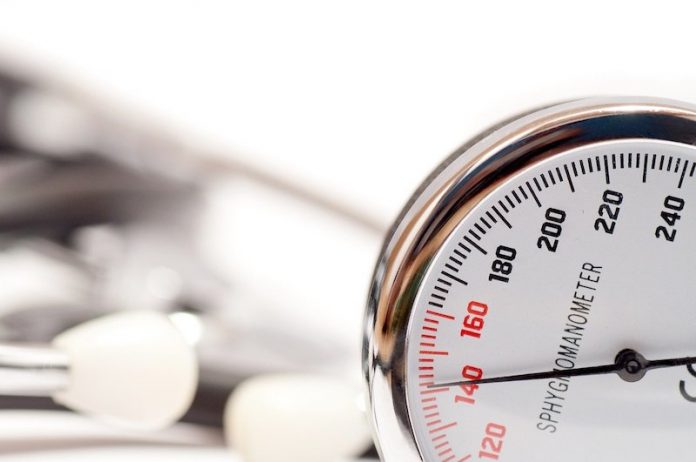
In a new study, researchers found men with untreated high blood pressure have poorer penile blood flow than those with normal blood pressure.
The differences disappeared with blood pressure medication.
The results provide reassurance to men concerned about the effects of blood pressure-lowering medications.
The research was conducted by a team at the National and Kapodistrian University of Athens.
Hypertension (high blood pressure) affects more than one billion people worldwide and is the leading cause of premature death.
A healthy lifestyle is advised, including salt restriction, alcohol moderation, exercise, weight control, and smoking cessation.
Most patients also require drug treatment, which is linked to reduced risks of death, stroke, and heart disease—but around half of patients do not take their pills.
Sexual dysfunction is one reason why patients stop medication.
Men with hypertension are almost twice as likely to have impaired penile blood flow and erectile dysfunction compared to men with normal blood pressure, increasing their risk of heart disease and death.
High blood pressure damages artery walls, causing them to harden and narrow, and reducing blood flow to the penis. Erectile dysfunction is an early warning sign of damaged blood vessels.
However, previous studies have shown that erectile dysfunction is more common in treated, than untreated, men with high blood pressure.
And certain antihypertensive drugs—notably diuretics and beta-blockers—have been linked with deterioration in sexual function.
This study examined the link between blood pressure level and penile blood flow, and whether blood pressure-lowering medication had an effect on the relationship.
The study included 356 men with erectile dysfunction and no history of diabetes or cardiovascular disease who attended a clinic between 2006 and 2019.
The people were divided into three categories according to blood pressure: normal, high-normal, and hypertension.
A total of 164 (46%) patients were being treated with antihypertensive medications.
Among men not receiving high blood pressure medication, penile blood flow velocity progressively decreased with rising blood pressure—i.e. blood flow was fastest in those with normal blood pressure, slower in those with high-normal blood pressure, and slowest in those with hypertension.
In contrast, among men taking high blood pressure therapy, there was no difference in penile blood flow velocity between the three blood pressure categories.
The team says the decrease in penile blood flow velocity across the three blood pressure categories in men not taking antihypertensive medication shows big structural changes in the penile blood vessels from longstanding hypertension.
The blood flow differences across the three blood pressure categories disappeared with treatment, suggesting a medication effect.
An additional analysis compared treated and untreated men within each blood pressure group. In the hypertension category, treated and untreated patients had similar penile blood flow velocities.
However, in the high-normal category, treated men had worse penile blood flow than untreated men. Similarly, in the normal blood pressure category, treated men had worse penile blood flow than untreated men.
These results imply that hypertensive patients already have significant structural damage in the penile arteries and adding antihypertensive drugs does not further reduce penile blood flow.
But in men with normal or high-normal blood pressure, the penile arteries have minimal structural damage, and medications could have a negative impact on penile blood flow.
The team urged men with concerns about sexual dysfunction to discuss it with their doctor.
For men with as yet untreated hypertension, older medications (beta-blockers and diuretics) are not ideal and should be used only if absolutely indicated.
One author of the study is Professor Charalambos Vlachopoulos of the National and Kapodistrian University of Athens, Greece.
The study was presented at ESC Congress 2020.
Copyright © 2020 Knowridge Science Report. All rights reserved.



